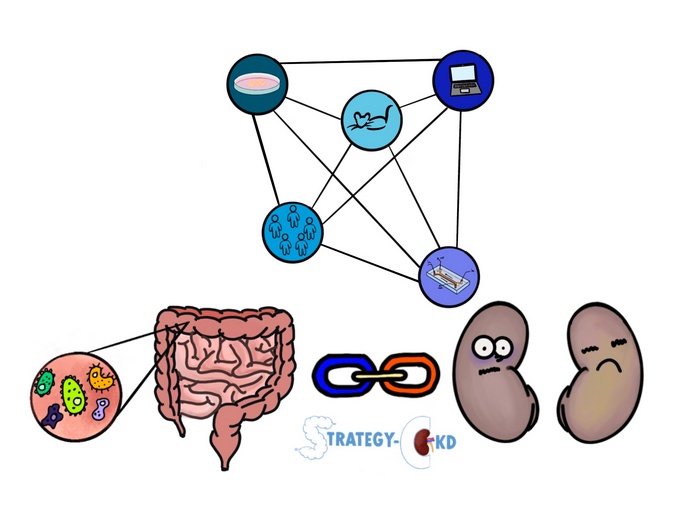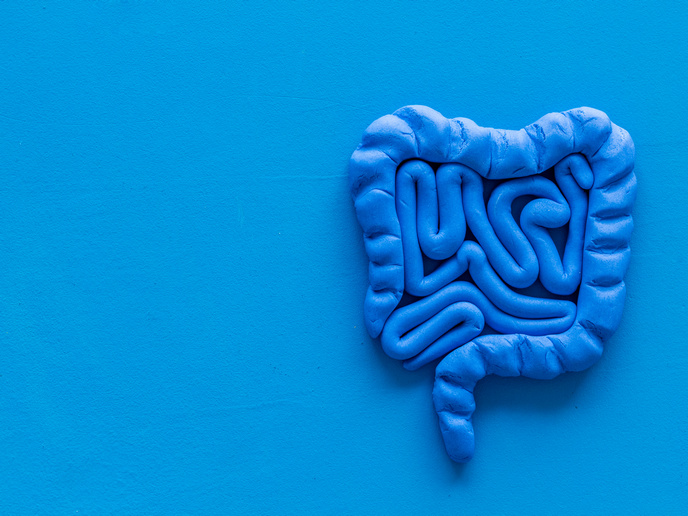Gut-kidney crosstalk in chronic kidney disease
Chronic kidney disease (CKD) affects the lives of millions of people worldwide. Beyond its direct impact on kidney health, CKD significantly elevates the risk of cardiovascular disease (CVD) which constitutes the leading cause of death among CKD patients. Traditional risk factors such as age, gender, and smoking fail to fully explain the heightened CVD risk in CKD. Accumulating evidence suggests that non-traditional factors play a pivotal role such as the accumulation of uremic toxins, systemic inflammation, and endothelial dysfunction.
Exploring the gut-kidney axis
The gut-kidney axis emerges as a critical pathway in CKD. Increasing levels of urea in the gut affect the activity of resident microbiota, potentially culminating in higher systemic levels of uremic toxins. Investigating this pathway could offer cost-effective, minimally invasive therapeutic strategies to improve cardiovascular outcomes in CKD patients. Undertaken with the support of the Marie Skłodowska-Curie Actions programme, the STRATEGY-CKD project aims to address this gap through innovative research and comprehensive training of a new generation of scientists. “We have established a robust European research network that ensures future researchers can translate knowledge into innovative therapies for CKD patients,” explains project coordinator Griet Glorieux. This dynamic network offered important opportunities and skills to trainees to become independent researchers or entrepreneurs. At the same time, it has developed advanced omics approaches to study patient samples, cell cultures and animal models relevant for CKD.
Key insights
STRATEGY-CKD has made significant progress in developing advanced tools and methodologies for studying the gut-kidney axis. The project has established a robust pipeline for microbiome research, integrating bioinformatics and systems biology approaches. A notable innovation is the LIANA+ framework, which enhances our understanding of cell-cell and host-microbiome interactions by leveraging data from multi-omics technologies. Significant efforts on the identification of omics-based biomarkers have identified the urinary peptidome as a promising non-invasive tool for differentiation of CKD aetiologies. This method has the potential to support diagnostic decisions in clinical practice. Additionally, STRATEGY-CKD researchers have built sophisticated preclinical models, including organ-on-a-chip systems and animal models, to investigate the gut-kidney axis and CKD-related complications such as vascular calcification and thrombosis. These models have, for example, demonstrated the therapeutic benefits of short-chain fatty acids (SCFAs) and highlighted the role of dietary protein in influencing kidney function. Moreover, the project has revealed important sex-specific differences in pharmacokinetics and haemostatic dysfunction in CKD, underscoring the need for tailored therapeutic strategies. These findings contribute to a deeper understanding of CKD pathophysiology and point toward personalised interventions to improve patient outcomes.
Translating research into the clinic
The findings of the STRATEGY-CKD project have significant clinical implications. The beneficial effects of SCFAs on the intestinal barrier and kidney resilience pave the way towards the design of potential dietary interventions. In the form of active end-metabolites or biotics, they activate the microbiota present in the gut. Overall, the project has highlighted the role of interactions between gut microbiota and the kidney in CKD. Research innovations not only deepen our understanding of CKD but also set the stage for developing new therapeutic strategies.
Keywords
STRATEGY-CKD, gut, chronic kidney disease, omics, microbiome, short-chain fatty acids, urinary peptidome







